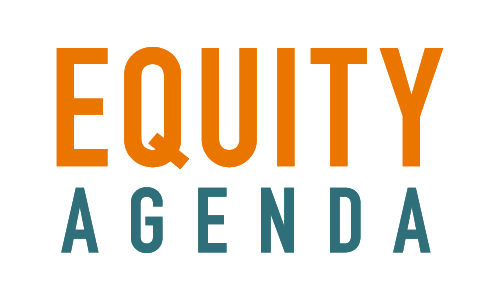I can be a glass-half-empty kind of person.
As we’re all still one-day-at-a-timing it a year into this pandemic, the impacts of it continue to compound. While men appear to suffer more severe cases of COVID19 and die of the disease at greater rates than women, all of the terrible impacts of the disease that are not the disease itself continue to accumulate disproportionately to women, especially women of color and those that are mothers. There has been not only a precipitous drop in labor force participation, but also increasing mental health impacts. Many of the underlying systemic reasons for these problems existed before the pandemic, including the reliance of our economy on the undervalued, unpaid, and underpaid labor of women both in the home and out of it, and the impacts of the pandemic on these systemic problems might just be to worsen them, if we don’t use the spotlight the pandemic created to move us to action.
Despite knowing all the above, and reading more about it every day, I really *want* to be a glass-half-full woman.
While we wait for the new Presidential Administration, with its brand-new gender equity council, to implement some solutions that apply broadly to all of us, there are efforts cities can undertake to address these systemic problems for their residents.
While preemption by state law is a perennial problem for cities trying to serve their residents, some cities do have the authority to increase the minimum wage and/or implement paid family leave. Both of these reforms help women of color and mothers, especially if cities ensure a paid family leave program rather than just paid maternity leave. (I’ll cover why the broader program is better than a more targeted maternity leave in a future blog post.)
Even in cities that don’t have the authority to do this city-wide, nearly every city can at least implement these reforms for their own workforce, as well as incentivizing local businesses to do it as well. While local governments are facing some tough budgets ahead, and some are looking to cut city jobs, that will have a disproportionate impact on women and people of color, and other budget cuts could be more equity-neutral. For the same systemic reasons, increasing the minimum wage and providing paid family leave even just for city employees would also have a positive impact on women and people of color.
Another alternative is to ramp up support for child care providers and facilities in your community. This could be direct financial support, but could also be eliminating various fees or changing development processes to better support these providers. (I could say more about the low pay of child care workers, and the undervaluing of child care as critical public infrastructure and how it’s connected to the sector being gendered, but you get the point…)
While county governments are generally the local government more active in the provision of public health services, cities regularly partner and help fund public health work. Another area that city leaders are increasingly stepping up is around reproductive health access and justice. Cities like New York have designated funding for residents to access abortion services. Other cities like Austin Texas, who are unable to fund abortion because of preemption, have budgeted funding to support transportation and other logistical needs for residents getting abortion care. Partnering with counties and other entities to address the already extreme maternal mortality disparities for Black women exacerbated by COVID is another opportunity for creative thinking by city governments.
There are lots of other potential solutions on a variety of topics where the problems are multiplying as a result of COVID: housing and homelessness, addressing sexual assault and family violence, funding to address “period poverty,” transit and transportation (on which women pre-pandemic already spent more of their income) , etc.
While these systemic inequities existed before COVID and continue to feel intractable, the pandemic is also an opportunity. City governments have always been “solutions laboratories”- we can use the intensity and depth of the problems to garner support for outside the box solutions to problems that seem bigger than city government. Be bold, because city actions can make a big impact, even if you just fail forward. Join me in working to be a reformed pessimist.
This is what we do all day, every day: reach out if we can help: with ideation, with best practices, with implementation, with strategic planning.
